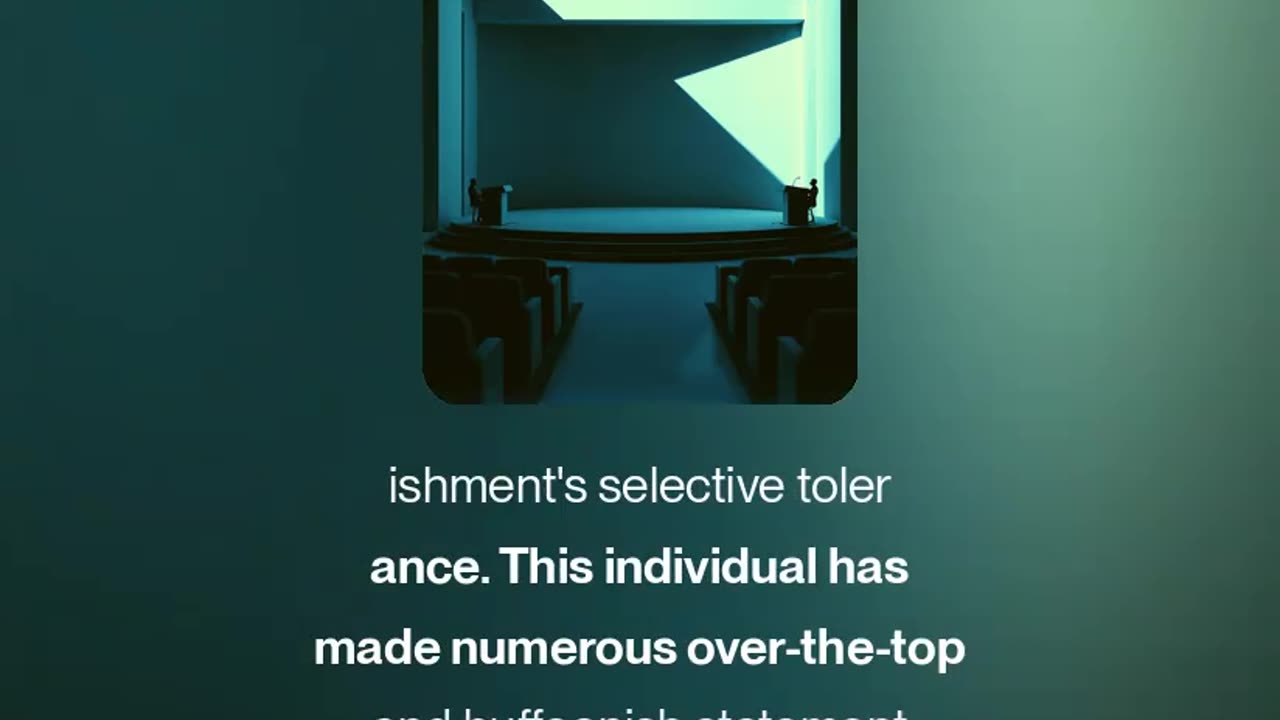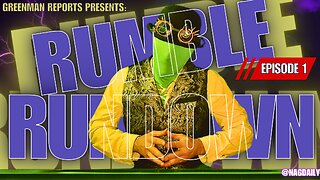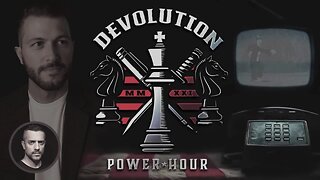Premium Only Content

Amanda Seales Jubilee and the Culture War
Jubilee recently hosted a so-called black radical alongside 20 black conservatives in a heated debate that quickly went viral. The exchange featured intense back-and-forth moments, like when the radical dismissed conservative views on personal responsibility as outdated or accused them of betraying their community by aligning with mainstream right-wing ideas. For instance, discussions around affirmative action turned fiery, with the radical defending it as essential reparations while conservatives argued it undermines merit and perpetuates dependency. Other clashes included topics like police reform, where the radical pushed for defunding as a solution to systemic racism, only to face pushback from conservatives emphasizing law and order and community accountability. But beyond the specifics of that debate, the real issue here is the establishment's selective tolerance. This individual has made numerous over-the-top and buffoonish statements in recent years, from claiming that Jussie Smollett's alleged hoax was "low-key noble" because it supposedly highlighted real issues without harming anyone, to publicly announcing a self-diagnosis of autism spectrum disorder, which she later clarified as an official diagnosis amid backlash for how it was presented. It appears the progressive-left-leaning establishment has a high tolerance for certain types of buffoonery—as long as it aligns with their ideology.
In contrast, imagine trying to platform figures whose ideas challenge the dominant narrative from the other side. You wouldn't see a debate featuring a Native American activist who proudly defended traditional American patriotism, criticized illegal immigration as a threat to national sovereignty, and argued against multiculturalism eroding cultural identity, pitted against 20 liberal critics. Nor would there be space for an academic philosopher who presented data on the heritability of group differences in intelligence and behavior, suggesting these have implications for social policy, facing off against opponents in an open forum. Why? Because the establishment views such perspectives as too dangerous to amplify in the information age. Figures like Jared Taylor, Nick Fuentes, or even Alex Jones are routinely deplatformed for similar reasons—their ideas are labeled toxic, and any exposure is seen as a risk to the prevailing order.
The progressive left has effectively conquered social media and much of the online landscape, making resistance an uphill battle. Organizations like the ADL enforce rules that are inherently progressive, dictating what counts as acceptable discourse. Questioning topics like mass migration's impact on indigenous cultures or exploring scientific debates on racial disparities in outcomes is deemed too perilous, effectively controlling the internet as the modern court of public opinion. They shape the narrative, often without meaningful challenge, by labeling dissent as hate speech or misinformation.
So, what can objective people do to resist this imbalance? First, be brutally honest about the forces you're up against—recognize the asymmetry in who gets a voice and why. Second, develop innovative strategies to counter these egotists who avoid genuine engagement; think beyond direct confrontation, perhaps through alternative media or decentralized networks. Third, prioritize building economic resources wherever possible—support independent creators, invest in platforms that value free speech, and foster communities that aren't beholden to big tech gatekeepers. At every opportunity, target their economic foundations: boycott advertisers who fund biased outlets, promote competitors that offer fairer algorithms, and advocate for policies that break up monopolies in media and tech. Remember, all wars are fundamentally economic, including culture wars; starving the beast of funding is key to shifting the power dynamic over time. Additionally, educate yourself on suppressed viewpoints, like those from indigenous conservatives who emphasize self-reliance over victimhood narratives, or philosophers who urge evidence-based discussions on human differences to inform ethics and policy. By amplifying these ideas subtly and strategically, we can chip away at the monopoly on truth.
-
 30:48
30:48
SouthernbelleReacts
1 day agoI Finally Watched Trick ’r Treat… And I’m NOT OKAY 😭🎃 | Halloween Horror Reaction
32.6K4 -
 13:49
13:49
Clintonjaws
13 hours ago $0.11 earnedWOW Trump Just Said He's Doing This To Canada
1137 -
 46:43
46:43
WanderingWithWine
10 days ago5 Dream Homes in Beautiful Tuscany! | Italian Property For Sale
211 -
 7:23
7:23
Danny Rayes
4 days ago $0.01 earnedAI Is Getting Out of Control...
3.47K -
 13:39
13:39
Fit'n Fire
13 hours ago $0.06 earnedKel-Tec RDB Got Even Better?
4.43K1 -
 9:02
9:02
Advanced Level Diagnostics
6 days ago2007 Toyota Camry - I Wish They Were All This Simple!
511 -
 4:22
4:22
NAG Daily
12 hours agoRUMBLE RUNDOWN – THE RUMBLE COLLAB SHOW EP.1 W/GreenMan Reports
4.19K6 -
 1:46:35
1:46:35
Badlands Media
1 day agoDevolution Power Hour Ep. 401: Trump’s Third Term, AI Judges & the New Revolution
428K75 -
 4:44:53
4:44:53
MattMorseTV
11 hours ago $219.38 earned🔴Antifa action INBOUND.🔴
204K121 -
 2:11:24
2:11:24
Tundra Tactical
14 hours ago $63.56 earnedTundra Nation Live - Tundra's Guns?? We Finally See What Tundra Shoots
51.7K4